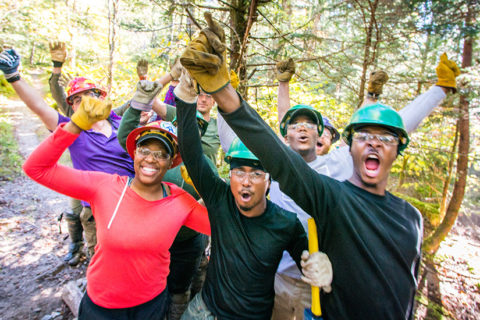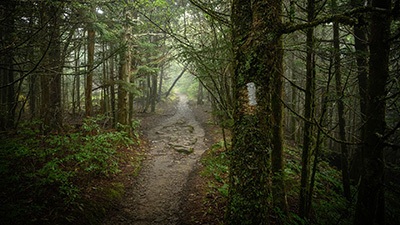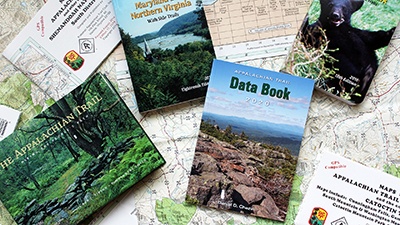By Sandra Marra, President & CEO of the Appalachian Trail Conservancy
The ATC’s COVID-19 Plan
March 13, 2020
The response to COVID-19 is constantly evolving throughout the world, and the ATC is frequently updating its guidance and listings of Trail-related closures and travel restrictions. To make sure you have the most up-to-date information, please visit appalachiantrail.org/covid19.
Update: Our guidance has changed since the publication of this post. For the most up-to-date information, please visit appalachiantrail.org/covid-19 or click the button below.
As more cases of COVID-19 (commonly referred to as “Coronavirus”) are diagnosed, the Appalachian Trail Conservancy is monitoring the situation closely to ensure we are taking the appropriate actions, not only for our staff, but also for the community of volunteers and hikers who actively use and work on the Trail. While the risk of contracting COVID-19 is still considered to be low, we are taking this situation very seriously and are incorporating the guidelines provided by the Centers for Disease Control and Prevention (CDC) and the World Health Organization into all we do to mitigate the spread of COVID-19.
In order to reduce the risk of contracting or spreading this highly contagious virus to others, ATC staff members and volunteers will postpone all non-essential travel and conduct meetings and conferences digitally whenever possible. Any in-person meetings or work trips — including volunteer Trail maintenance projects — will be limited to no more than twelve people in one location to reduce the risk of infection. Any staff member or volunteer who displays the symptoms of COVID-19 infection will be asked to stay home until cleared to return to work by a medical professional. We are also encouraging staff members and volunteers to work from home whenever possible. While we do not anticipate this will significantly reduce our ability to quickly respond to emails, phone calls, membership requests, donor acknowledgements and other important communications, we appreciate everyone’s understanding and patience as we transition to this new structure.
Beginning today, the ATC Visitor Center in Harpers will be closed until at least March 20 as we assess the best methods to ensure all visitors, staff members and volunteers are kept as safe and healthy as possible. We will reassess this closure next week to determine if more time will be needed before the Visitor Center reopens.
Due to the risks inherent with large gatherings, the 2020 Flip Flop Festival has also been canceled. We still welcome any aspiring flip flop thru-hikers to begin or end their hikes at ATC headquarters. Should the Visitor Center still be closed, we ask that hikers take a selfie in front of the ATC sign and send them along with their name and starting date to info@appalachiantrail.org. We will then add your photo to our official album of 2020 hikers.
For Appalachian Trail hikers, distancing yourself from other hikers and maintaining good hygiene is the best defense for reducing your chances of contracting any illness:
- Wash your hands frequently with biodegradable soap at least 200 feet from water sources. When soap is not available, use hand sanitizer that contains 60-95% alcohol.
- Avoid sharing food. Do not eat out of the same food bag, share utensils or drink from other hikers’ water bottles.
- Avoid touching your eyes, nose and mouth.
- Cover your mouth when coughing or sneezing. Use the crook of your arm (inner elbow) or use a tissue and dispose of it using Leave No Trace Principles.
- Keep some distance between you and other hikers whenever possible, especially if anyone shows signs of being sick. Avoid shaking hands or other close contact — instead, elbow bumps or waving are safer ways to greet others.
- Avoid congregating in groups along the Trail.
- If you are an older adult or have serious chronic medical conditions like heart disease, diabetes or lung disease, you are at a higher risk of serious illness from COVID-19 contraction. Hike and camp away from others to minimize the likelihood of infection.
- If you begin feeling sick, stay away from others and get off the Trail until examined and cleared for return to the Trail by a medical professional.
- If you are diagnosed with COVID-19 while on the A.T., please submit an incident report at appalachiantrail.org/incidents detailing when you got sick, when and where you got off the Trail and any other helpful information.
For volunteers working on the footpath, the additional guidelines are also recommended:
- Minimize carpooling to work locations. While this is not ideal regarding environmental impacts, personal safety and health take priority.
- Work in groups of no more than 12 people in any location.
- Avoid sharing tools and equipment whenever possible.
For additional guidance and downloadable handouts, please visit appalachiantrail.org/covid-19.
The health and wellbeing of the greater A.T. community is our top priority. As the situation continues, the ATC will provide frequent updates regarding events and guidelines for remaining safe and healthy on the A.T. and beyond. For any questions or concerns, please contact us by email at info@appalachiantrail.org or by phone at 304.535.6331.
Sincerely,
Sandra Marra
President & CEO
Appalachian Trail Conservancy






